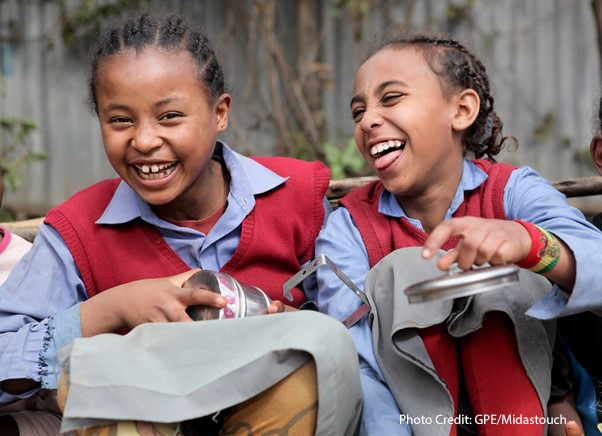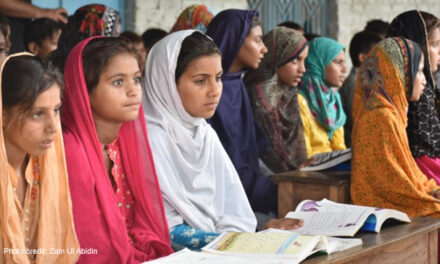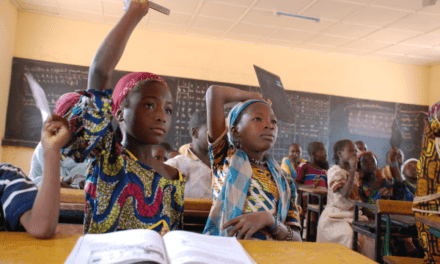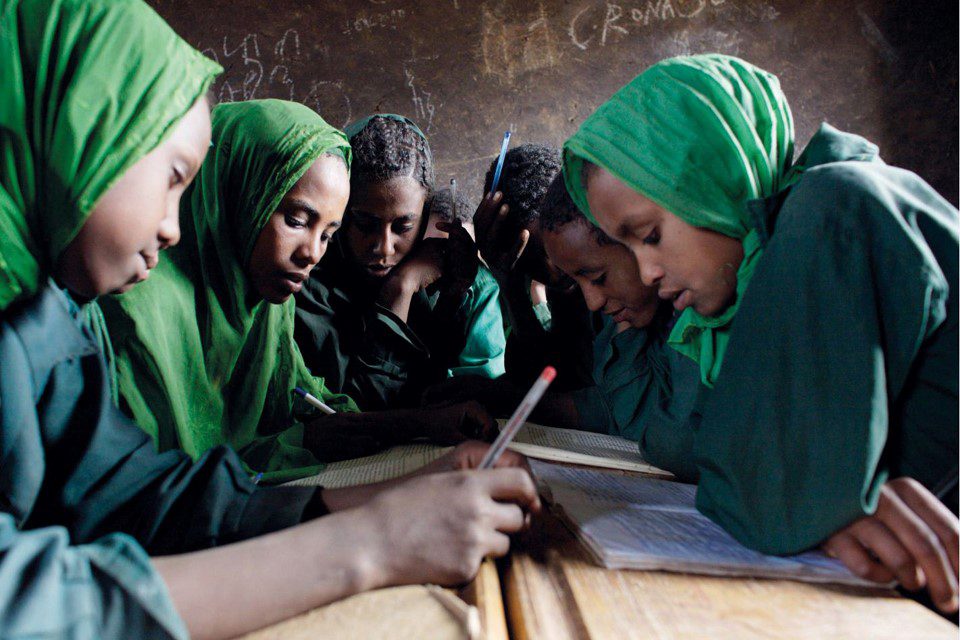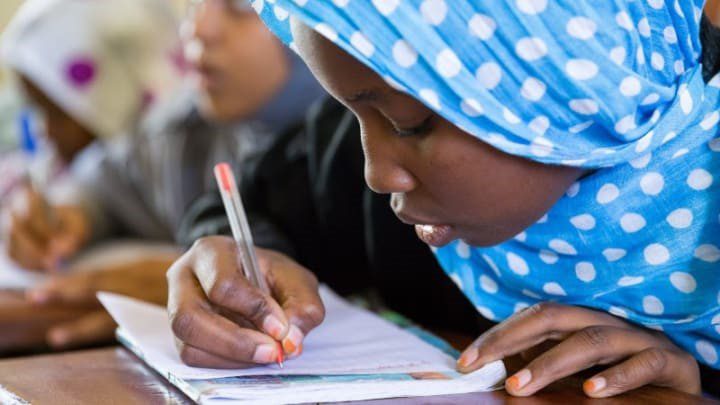This blog was written by Catherine Porter, Alula Pankhurst, Kath Ford and Julia Tilford after the Transforming Education Summit and published on the Young Lives website on 29 September 2022.
At last week’s Transforming Education Summit in New York, more than 130 countries committed to rebooting their education systems and accelerating action to end the global learning crisis and get back on track Sustainable Development Goal 4, to achieve 12 years of quality education for all children.
Young Lives has endorsed the Commitment to Action on Foundational Learning and supports the recent call from international organisations, including The World Bank, UNICEF, FCDO and the Gates Foundation, to ensure that education systems are delivering improved learning for all children.
While this call is pivotal to address the global learning crisis, we believe that a supportive and enabling environment is vital to keep all children in school and on a path to success, dignity and empowerment, particularly vulnerable girls and young women.
Over the last 20 years, Young Lives has been privileged to bear witness to the hopes, aspirations and challenges facing 12,000 children as they have navigated their journeys through very different education systems, growing up in poverty in Ethiopia, India (Andhra Pradesh and Telangana), Peru and Vietnam.
Our evidence shows that investing in teachers and schools is critical to improve foundational learning through developing basic literacy, numeracy and socio-emotional skills, particularly through access to quality pre-primary education which can have significant long-term positive impacts on skills development and learning outcomes.
However, providing a supportive and enabling environment for vulnerable girls and young women to stay in education, safely, and with sufficient resources and time to study, is essential, and without it, investment in school systems will have much lower rewards.
Staying in school is difficult for many girls and young women
Despite increased school enrolment, pervasive inequalities and gender discrimination continue to present formidable obstacles to many girls and young women wishing to stay in school, particularly those from the poorest households, in rural areas and minority status backgrounds.
One such case is that of Beletch, a young woman from a rural farming community in Ethiopia. Young Lives interviewed Beletch many times throughout her childhood. As an orphan looked after by her aunt , Beletch was required to do a lot of housework and was not allowed enough time to study; she told us that she felt very sad about this and “was worked like a donkey”. She also felt unsafe at home and reported that her male cousins beat her “with a stick on my face” saying that,
“in case of danger or a threat, children who have families can tell their families, but since I do not have parents, there is no one to protect me from danger.”
Beletch missed a lot of school due to periods of ill-health, but nurtured high aspirations to succeed in her education and hoped to one day find a good job as a doctor or a teacher. She did not want to get married early, and at the age of 13 said,
“It is better to die than to marry…..if I marry I will become poor.”
Eventually the challenges to staying in school became too great. Beletch was persuaded to drop out of school to get married at the age of 17, having only completed primary school (grade 6). Despite wanting to continue her education, the pressures of domestic work, becoming a young mother and working on the family farm meant this was unachievable. In her last interview with Young Lives before the pandemic, Beletch said,
“I was not able to go to school after I married. How is that possible once you are married?”
Beletch’s story is a powerful testament to how millions of girls and young women continue to be let down, not only by underfunded and inadequate education systems, but also by a socio-economic poverty trap and a lifetime of gender discrimination.
Increasing burdens of domestic work and childcare may further reduce girls’ ability to study
Gender gaps in education outcomes typically widen through adolescence into early adulthood. Across all four Young Lives study countries, we have seen that households tend to resort to traditional gender roles at times of stress, with girls and young women bearing the greatest burden of increased household duties and looking after children. In Ethiopia, 70% of girls in our study spent more time on household work during the pandemic, compared with only 26% of boys. Even where this does not result in dropping out of school, it is likely to significantly reduce the time girls have available to keep up with schoolwork.
Girls who have dropped out of school are also at risk of early marriage
Girls who drop out of school, especially in rural areas and among poorer households, are much more likely to be married off early by their parents, than those who stay in education. Likewise, early motherhood puts girls at much greater risk of dropping out of school, as well as having detrimental effects on the health of the baby. Our evidence shows that a girl who is still in school at the age of 15 is 32 per cent less likely to marry early, compared to those who have already dropped out.
Transforming education for vulnerable girls and young women requires a broad approach
So what would make the greatest difference to vulnerable girls like Beletch?
The package of commitments agreed at last week’s Summit is both ambitious and wide-ranging, backed by an urgently needed new international funding pledge ($2bn in the initial phase). But of course, the devil is always in the implementation and whilst financial investment in education is essential, key actions to provide a supportive and enabling environment could also make a real difference:
- Adapting and expanding social protection programmes to support the poorest families, including targeted cash transfers and direct food provisions, can have a knock-on effect on both improving skills development and learning as well as helping to keep girls and young women in school by reducing the need for them to go out to work in times of financial stress.
- Improved measures to address unpaid domestic work such as childcare support, cash benefits for families, and the expansion of available and accessible crèches and pre-schools can relieve the burden on girls and women and help them get back to school.
- Ensuring that schools are safe and accessible becomes increasingly critical as girls enter adolescence; safe and reliable transport to school (particularly secondary schools which are often at a distance from rural communities) is important to reduce the risk of violence on the way to and from school, and ensuring schools provide suitable facilities for water and sanitation needs is vital during menstruation.
- Programmes to reduce early marriage and parenthood should address underlying causes including the increased risk posed by girls dropping out of school, particularly those living in poor households and rural areas.
- Providing scholarships to disadvantaged girls and young women to stay in school can also make a big difference, including supporting those who previously dropped out, and subsequently got married or become pregnant, to continue with their education.
Without urgent action to deliver a joined-up approach to transforming education, an increasing number of vulnerable girls and women risk slipping through the education net, with profound impacts on their future lives.
—————-
In 2019, Young Lives interviewed Beletch and her husband as part of research on early marriage and parenthood. You can watch their short film here and read more about Young Lives research into early marriage and parenthood here.
We are very sad to have received the news that Beletch died unexpectedly in April 2022, at the very young age of 29, leaving behind her husband and four young daughters. We dedicate this blog to her memory, in the hope that global ambitions to transform education for all result in significantly better opportunities for Beletch’s four daughters, as they grow up in an ever-changing and uncertain world.

